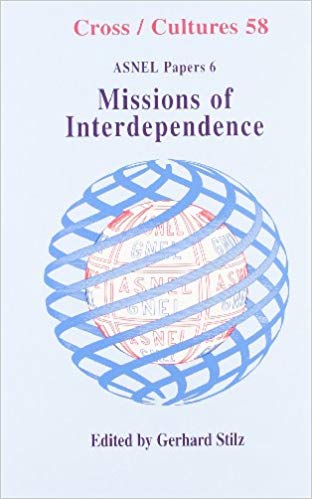
At the beginning of the twenty-first century it is necessary to combine into a productive programme the striving for individual emancipation and the social practice of humanism, in order to help the world survive both the ancient pitfalls of particularist terrorism and the levelling tendencies of cultural indifference engendered by the renewed imperialist arrogance of hegemonial global capital.
In this book, thirty-five scholars address and negotiate, in a spirit of learning and understanding, an exemplary variety of intercultural splits and fissures that have opened up in the English-speaking world. Their methodology can be seen to constitute a seminal field of intellectual signposts. They point out ways and means of responsibly assessing colonial predicaments and postcolonial developments in six regions shaped in the past by the British Empire and still associated today through their allegiance to the idea of a Commonwealth of Nations. They show how a new ethic of literary self-assertion, interpretative mediation and critical responsiveness can remove the deeply ingrained prejudices, silences and taboos established by discrimination against race, class and gender.
Table of Contents
Introduction
North America
Ulla Haselstein: Puritans and Praying Indians: Versions of TranscuIturation in Mary Rowlandson’s Captivity Narrative (1682)
Pilar Cuder Domínguez: Colonial Canada’s Forgotten Captivity Narratives: James Russell’s Matilda; or, the Indian’s Captive
(1833)
Mirko Jurak: Northrop Frye and Margaret Atwood: On National Identity in Canadian Literature
Maya Petrukhina: Timothy Findley’s Look into History and War
Mark Shackleton: Tomson Highway: Colonizing Christianity versus Native Myth – From Cultural Conflict to Reconciliation
Mari Peepre: Crossing the Fields of Death in Kerri Sakamoto’s The Electrical Field (1998)
The Caribbean
Bruce King: Religion and Education in Derek Walcott’s St Lucia
John Thieme: Derek Walcott and the Light of the World
Ulrike Erichsen: “Planning a strategy to beat back those spirit thieves”: Erna Brodber’s Novel Myal
Anne Collett: A Snake in the Garden of The New Yorker? An Analysis of the Disruptive Function of Jamaica Kincaid’s Gardening
Column
Sarah Lawson Welsh: Imposing Narratives: European Incursions and Intertexts in Pauline Melville’s The Ventriloquist’s Tale
(1997)
Bénédicte Ledent: “One is exiled when one refuses to obey the commandments of Conquest Mission”: Religion as
Metaphor in Caryl Phillips’s Diasporic Philosophy
Africa
Jacqueline Bardolph: Moving away from the Mission: Ngugi wa Thiong’o’s Versions of A Grain of Wheat
Thengani H. Ngwenya: Ideology and Self-Representation in Autobiography: The Case of Katie Makanya
Heilna Du Plooy: New Voices Rewriting the Community: Dialogic History in South Africa; A.H.M. Scholtz’s Novel Vatmaar
Eva Hunter: New War Stories: Women, Heroes and Violence in Yvonne Vera’s Novels
John C. Hawley: Tsitsi Dangarembga’s Ambiguous Adventure: Nervous Conditions and the Blandishments of Mission Education
India
Hyacinth Cynthia Wyatt: Resistance through Sub / mission in the Novels of R.K. Narayan
Isabel Alonso Breto: Manichaeism and Mimicry in Ruth Prawer Jhabvala’s Heat and Dust
Rajiva Wijesinha: A Deeper Communion: The Older Women of the Raj Quartet
Chitra Sankaran: Colonialism, Hegemony and After in Nayantara Sahgal’s Rich Like Us
Rocío G. Davis: To Dwell in Travel: Historical Ironies in Amitav Ghosh’s In an Antique Land
Robert Ross: “Dissolving Boundaries”: The Woman as Immigrant in the Fiction of Chitra Banerjee Divakaruni.
Alexandra Podgórniak: Magical Realism, Indian-Style, or the Case of Multiple Submission : The God of Small Things by
Arundhati Roy
Australia
Olga Sudlenkova: Fair Australasia: A Poet’s Farewell to Emigrants
Marc Delrez: Ambivalent Oppositionality: David Malouf’s Fly Away Peter – A European View
Ralph Pordzik: Reinventing the Future(s): Peter Carey and the Dystopian Tradition in Australian Fiction
Sigrun Meinig: Literary Lessons from the Past: Stereotypes and Intertextuality in Peter Carey’s Jack Maggs
Cynthia Vanden Driesen: The (Ad)Missions of the Colonizer: Australian Paradigms in Selected Works of Prichard, Malouf and White
Eva Rask Knudsen: Mission Completed? On Mudrooroo’s Contribution to the Politics of Aboriginal Literature in Australia
Gerry Turcotte: Mission Impossible: Mudrooroo’s Gothic Inter / Mission Statement
New Zealand and the Pacific
Bärbel Czennia: Missionaries of the British Muse: Concepts of Literary Nation-Building in Early New Zealand Poetry
in English
Peter H. Marsden: From Erewhon to Nowhere: A Leitmotif of New Zealand Poetry?
Reina Whaitiri: A Sovereign Mission: Maori Maids, Maidens and Mothers
Jean-Pierre Durix: The Sky-Piercers, Lions and Aitu: Missions and ‘Traditions’ in Albert Wendt’s Vision of a New Pacific
Contributors.
Index.
